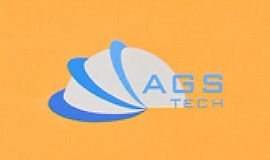


Global Custom Manufacturer, Integrator, Consolidator, Outsourcing Partner for a Wide Variety of Products & Services.
We are your one-stop source for manufacturing, fabrication, engineering, consolidation, integration, outsourcing of custom manufactured and off-shelf products & services. We also private label / white label your products with your brand name if you wish.
Choose your Language
-
Custom Manufacturing of Parts, Components, Assemblies, Finished Products, Machines and Industrial Equipment
-
Domestic & Global Contract Manufacturing
-
Manufacturing Outsourcing
-
Domestic, Global Procurement of Industrial Products
-
Private labeling / White Labeling your Products with your Brand Name
-
Product Finding & Locating Services
-
Global Design and Channel Partnership
-
Engineering Integration
-
Engineering Services
-
Global Consolidation, Warehousing, Logistics
We manufacture FASTENERS under TS16949, ISO9001 quality management system according to international standards such as ASTM, SAE, ISO, DIN, MIL. All our fasteners are shipped along with material certifications and inspection reports. We supply off-shelf fasteners as well as custom manufacture fasteners according to your technical drawings in case you require something different or special. We do provide engineering services in designing and developing specialty fasteners for your applications. Some major types of fasteners we offer are:
• Anchors
• Bolts
• Hardware
• Nails
• Nuts
• Pin Fasteners
• Rivets
• Rods
• Screws
• Security Fasteners
• Set Screws
• Sockets
• Springs
• Struts, Clamps, and Hangers
• Washers
• Weld Fasteners
- CLICK HERE to download additional info-1 on rivet nuts
- CLICK HERE to download additional info-2 on rivet nuts
- CLICK HERE to download catalog of our titanium bolts and nuts
- Screws and Fasteners (Standard and Specialty)
(Click on the blue text above to download the brochure. We can private label these for you. In other words, we can put your name and logo on these products)
- Screws for Furniture and Wood
(Click on the blue text above to download the brochure. We can private label these for you. In other words, we can put your name and logo on these products)
(Click on the blue text above to download the brochure. We can private label these for you. In other words, we can put your name and logo on these products)
- Private Label Hand Tools - Hand Tool Cabinets
(Click blue text above to download catalog. We can private label these hand tools if you wish. In other words, we can put your company name, brand and label on them. This way you can promote your brand by reselling these to your customers. These hand tools can complement your product offerings in case you are selling fasteners)
Our THREADED FASTENERS can be internally threaded as well as externally and come in various forms including:
- ISO Metric Screw Thread
- ACME
- American National Screw Thread (Inch Sizes)
- Unified National Screw Thread (Inch Sizes)
- Worm
- Square
- Knuckle
- Buttress
Our threaded fasteners are available with Right- and Left-Handed Threads as well as with Single and Multiple Threads. Both Inch Threads as well as Metric Threads are available for fasteners. For Inch threaded fasteners external thread classes 1A, 2A and 3A as well as internal thread classes of 1B, 2B and 3B are available. These inch thread classes differ in the amount of allowances and tolerances.
Classes 1A and 1B: These fasteners produce the loosest fit in assembly. They are used where ease of assembly and disassembly is needed such as stove bolts and other rough bolts and nuts.
Classes 2A and 2B: These fasteners are fit for ordinary commercial products and interchangeable parts. Typical machine screws and fasteners are examples.
Classes 3A and 3B: These fasteners are designed for exceptionally high-grade commercial products where a close fit is required. The cost of fasteners with threads in this class is higher.
For metric threaded fasteners we have coarse-thread, fine-thread and a series of constant pitches available.
Coarse-Thread Series: This series of fasteners are intended for use in general engineering work and commercial applications.
Fine-Thread Series: This series of fasteners are for general use where a finer thread than the coarse-thread is needed. When compared to the coarse-thread screw, the fine-thread screw is stronger in both tensile and torsional strength and less likely to loosen under vibration.
For the fasteners pitch and crest diameter, we have a number of tolerance grades as well as tolerance positions available.
PIPE THREADS: Besides fasteners, we can machine threads on pipes according to the designation provided by you. Make sure to call out the size of thread on your technical blueprints for custom pipes.
THREADED ASSEMBLIES: If you provide us threaded assembly drawings we can use our machines making fasteners for machining your assemblies. If you are unfamiliar with screw thread representations, we can prepare the blueprints for you.
SELECTION OF FASTENERS: Product selection should ideally begin at the design stage. Please determine the objectives of your fastening job and consult us. Our fasteners experts will review your objectives and circumstances and recommend the right fasteners at the best in-place cost. To obtain the maximum machine-screw efficiency, a thorough knowledge of the properties of both screw and fastened materials is needed. Our fastener experts have this knowledge available to assist you. We will need from you some input such as the loads that the screws and fasteners must withstand, whether the load on the fasteners and screws is one of tension or shear, and whether the fastened assembly will be subject to impact shock or vibrations. Depending on all these and other factors such as ease of assembly, cost….etc., the recommended size, strength, head shape, thread type of the screws and fasteners will be proposed to you. Among our most common threaded fasteners are SCREWS, BOLTS and STUDS.
MACHINE SCREWS: These fasteners have either fine or coarse threads and are available with a variety of heads. Machine screws can be used in tapped holes or with nuts.
CAP SCREWS: These are threaded fasteners that join two or more parts by passing through a clearance hole in one part and screwing into a tapped hole in the other. Cap screws are also available with various head types.
CAPTIVE SCREWS: These fasteners remain attached to the panel or parent material even when the mating part is disengaged. Captive screws meet military requirements, to prevent screws from being lost, for enabling faster assembly / disassembly and prevent damage from loose screws falling into moving parts and electrical circuits.
TAPPING SCREWS: These fasteners cut or form a mating thread when driven into preformed holes. Tapping screws permit rapid installation, because nuts are not used and access is required from only one side of the joint. The mating thread produced by the tapping screw fits the screw threads closely, and no clearance is necessary. The close fit usually keeps the screws tight, even when vibration is present. Self-drilling tapping screws have special points for drilling and then tapping their own holes. No drilling or punching is needed for self-drilling tapping screws. Tapping screws are used in steel, aluminum (cast, extruded, rolled or die-formed) die castings, cast iron, forgings, plastics, reinforced plastics, resin-impregnated plywood and other materials.
BOLTS: These are threaded fasteners that pass through clearance holes in assembled parts and thread into nuts.
STUDS: These fasteners are shafts threaded at both ends and are used in assemblies. Two major types of studs are double-end stud and continuous stud. As for other fasteners, it is important to determine what kind of grade and finish (plating or coating) is the most suitable.
NUTS: Both style-1 and style-2 metric nuts are available. These fasteners are used generally with bolts and studs. Hex nuts, hex-flanged nuts, hex-slotted nuts are popular. There are also variations within these groups.
WASHERS: These fasteners perform many varied functions in mechanically fastened assemblies. Washers functions can be to span an oversized clearance hole, give better bearing for nuts and screw faces, distribute loads over larger areas, serve as locking devices for threaded fasteners, maintain spring resistance pressure, guard surfaces against marring, provide sealing function and much more. Many types of these fasteners are available such as flat washers, conical washers, helical spring washers, tooth-lock types, spring washers, special purpose types…etc.
SETSCREWS: These are used as semipermanent fasteners to hold a collar, sheave, or gear on a shaft against rotational and translational forces. These fasteners are basically compression devices. Users should find the best combination of setscrew form, size, and point style that provides required holding power. Setscrews are categorized by their head style and point style desired.
LOCKNUTS: These fasteners are nuts with special internal means for gripping threaded fasteners to prevent rotation. We can view locknuts basically as standard nuts, but with an added locking feature. Locknuts have many very useful application areas including tubular fastening, use of locknuts on spring clamps, use of locknut where assembly is subjected to vibratory or cyclic motions that could cause loosening, for spring mounted connections where the nut must remain stationary or is subject to adjustment.
CAPTIVE OR SELF-RETAINING NUTS: This class of fasteners provide a permanent, strong, multiple-thread fastening on thin materials. Captive or self-retaining nuts are especially good when there are blind locations, and they can be attached without damaging finishes.
INSERTS: These fasteners are special form nuts designed to serve the function of a tapped hole in blind or through-hole locations. Different types are available such as molded-in inserts, self-tapping inserts, external-internal threaded inserts, pressed-in inserts, thin material inserts.
SEALING FASTENERS: This class of fasteners not only hold two or more parts together, but they can simultaneously offer sealing function for gases and liquids against leakage. We offer many types of sealing fasteners as well as custom designed sealed-joint constructions. Some popular products are sealing screws, sealing rivets, sealing nuts and sealing washers.
RIVETS: Riveting is a fast, simple, versatile and economical method of fastening. Rivets are considered permanent fasteners as opposed to removable fasteners such as screws and bolts. Simply described, rivets are ductile metal pins inserted through holes in two or more parts and having the ends formed over to securely hold the parts. Since rivets are permanent fasteners, riveted parts cannot be disassembled for maintenance or replacement without knocking the rivet out and installing a new one in place for reassembly. The type of rivets available are large and small rivets, rivets for aerospace equipment, blind rivets. As with all fasteners we sell, we do help our customers in the design and product selection process. From the type of rivet suitable for your application, to the speed of installation, in-place costs, spacing, length, edge distance and more, we are capable to assist you in your design process.
Reference Code: OICASRET-GLOBAL, OICASTICDM


















